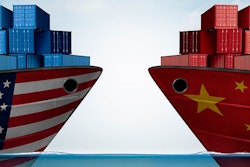WASHINGTON (AP) — President Donald Trump on Friday delayed any decision to impose tariffs on car and auto-part imports, deciding against ratcheting up trade disputes or impacting ongoing talks with European nations and Japan.
Trump has made it clear that any final decision on the matter hinges on trade negotiations between the United States and the European Union. In public hearings last year, the idea of imposing import taxes on cars drew almost no support, even from the U.S. auto industry.
White House press secretary Sarah Sanders said Trump's action follows an extensive Commerce Department review, which found that imports of automobiles and certain automobile parts threaten to impair U.S. national security. Trump issued a proclamation, directing U.S. Trade Representative Robert Lighthizer to continue to negotiate agreements to address the threat.
"United States defense and military superiority depend on the competitiveness of our automobile industry and the research and development that industry generates," Sanders said in a statement.
"If agreements are not reached within 180 days, the president will determine whether and what further action needs to be taken."
U.S. automakers ostensibly would benefit from a tax on their foreign competitors. But many U.S. automakers depend on imported parts that could be subject to Trump's tariffs and could become more expensive.
John Bozzella, president of Global Automakers, said if the president imposed new taxes on autos and auto parts, "American consumers will suffer a body blow." He said current tariffs have added cost, reduced the industry's global competitiveness and created uncertainty that has slowed investment and growth.


















